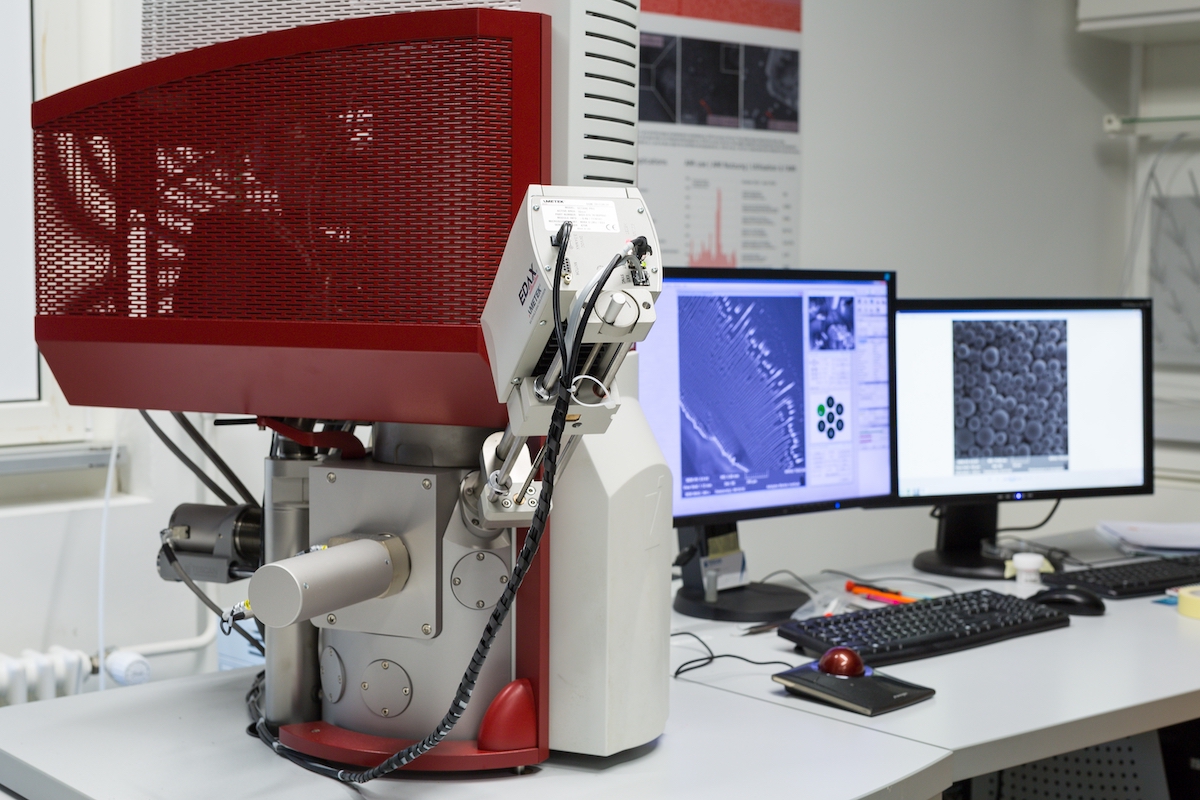Picture : Advanced microscopy techniques (pictured: a scanning electron microscope) are used to analyze nanoparticles.

A whole host of everyday products like chewing gum, toothpaste, sun screen, spices and even powdered soup often contain nanomaterials to improve their properties. Consumers are not always aware of this, but that will change in May 2021 when manufacturers will have to start declaring the presence of these miniscule particles – no bigger than one millionth of a millimeter – in the cosmetic and food products they sell in Switzerland.
To help firms meet this challenging new legal obligation, the Adolphe Merkle Institute (AMI) has created the Swiss NanoAnalytics platform (SNA). As Christoph Geers, the platform manager, explains, “Thanks to our cutting-edge instrumentation, which would beyond the financial reach of SMEs and many research laboratories, our expert staff can carry out bespoke and extremely detailed analyses.” As well as analyzing products for the presence of nanomaterials, the platform’s services include particle characterization and the testing of nanomaterial stability in biological fluids such as blood serum.
While Christoph Geers is delighted at the growing success of the SNA among companies and public bodies in sectors as varied as medicine, food, mobility and the environment, he is quick to praise the platform’s collaborative approach, “To make sure that we can evaluate nanomaterials with the greatest possible accuracy, Swiss NanoAnalytics relies on a vast nationwide network of experts from the public administration, industry and other research institutes.”
The take-off of two start-ups
AMI is deeply committed to ensuring that the technologies it develops also meet the needs of industry. According to Valeria Mozzetti Rohrseitz, Technology Transfer and Innovation Manager at AMI, “In our pursuit of innovation, we always have in mind how the work we do could benefit the wider community, and who our partners should be.” When it is unable to partner with the private sector, the acclaimed research institute is immediately there to support its researchers face the challenge of creating new companies.
“After the success of our first spin-off NanoLockin, which developed an innovative novel nanoparticle screening method, our institute already has two new start-up projects on the go. The first is focused on creating a nanofertilizer to tackle the problem of environmental pesticide pollution, while the second (Hemolytics) is focused on developing a novel rapid malaria diagnostics tool. Both benefit from Innosuisse funding.”
